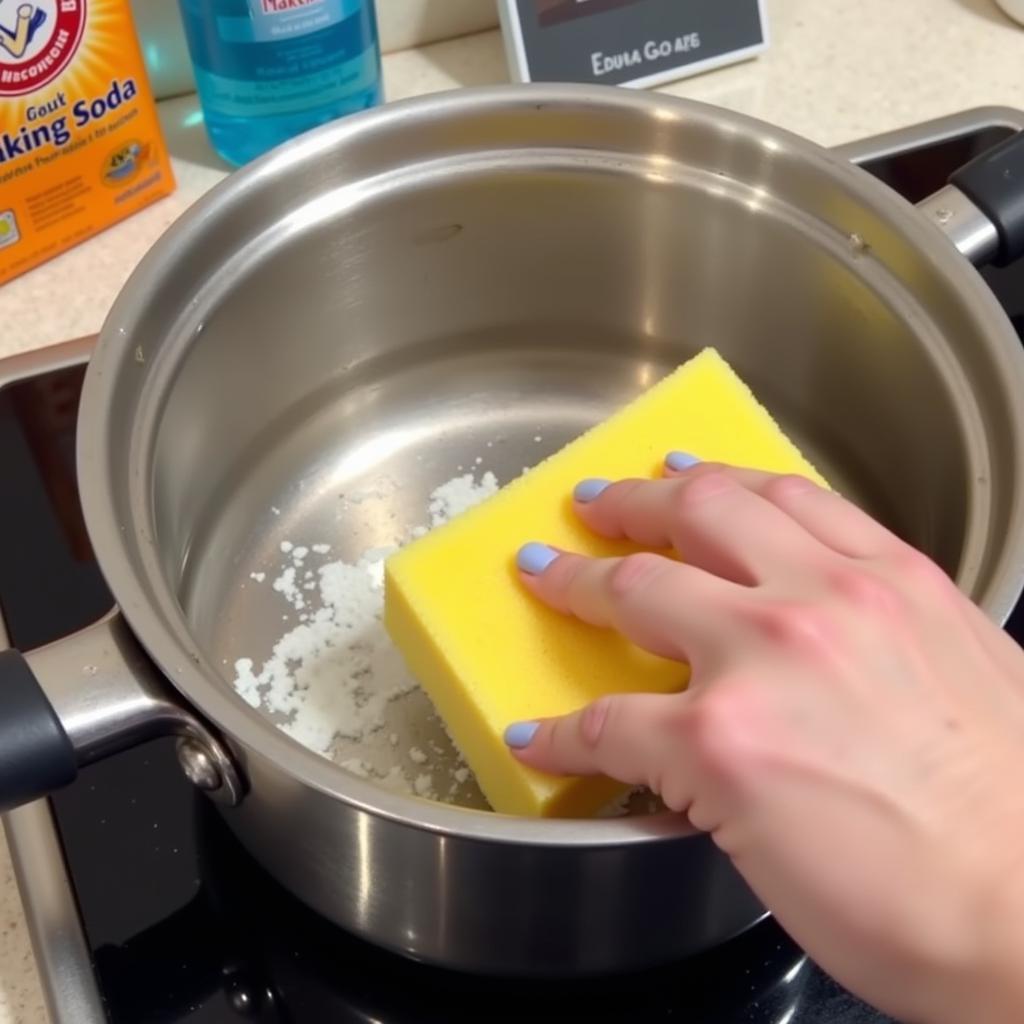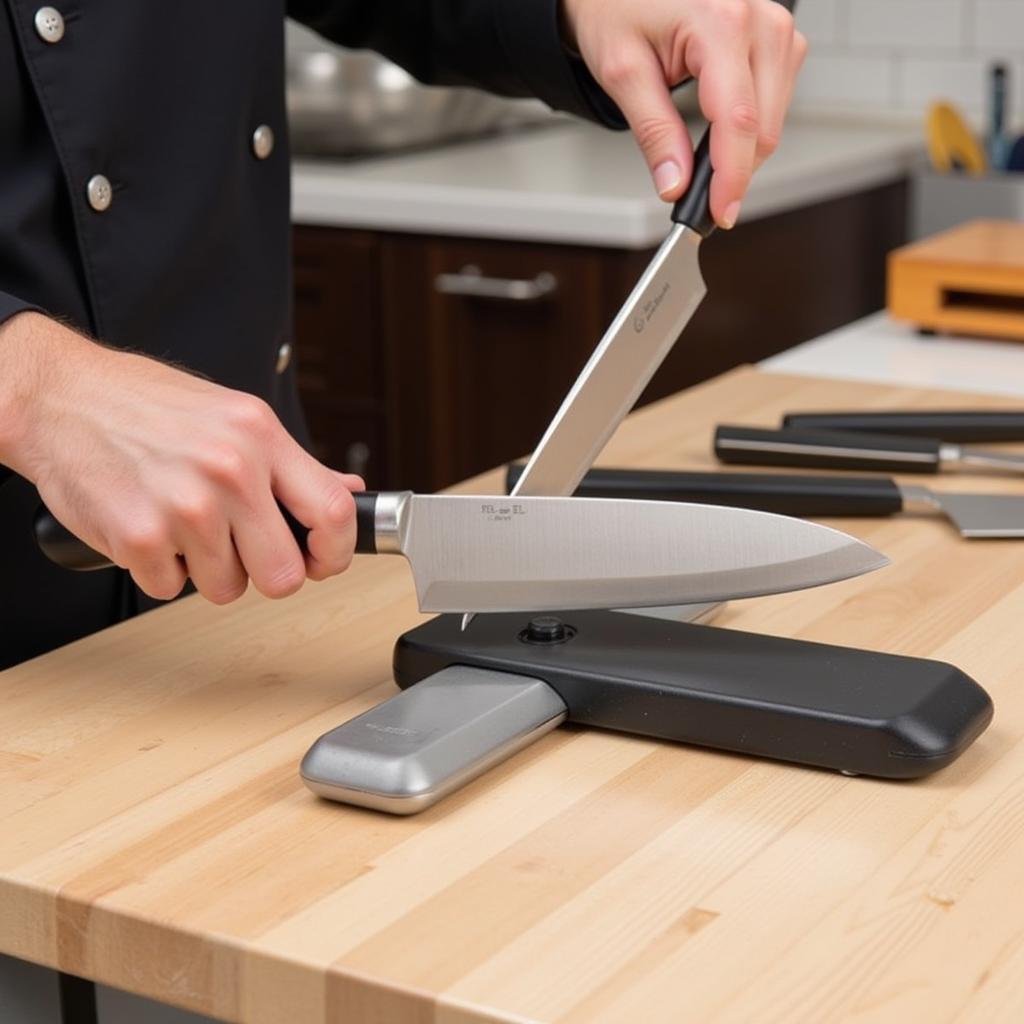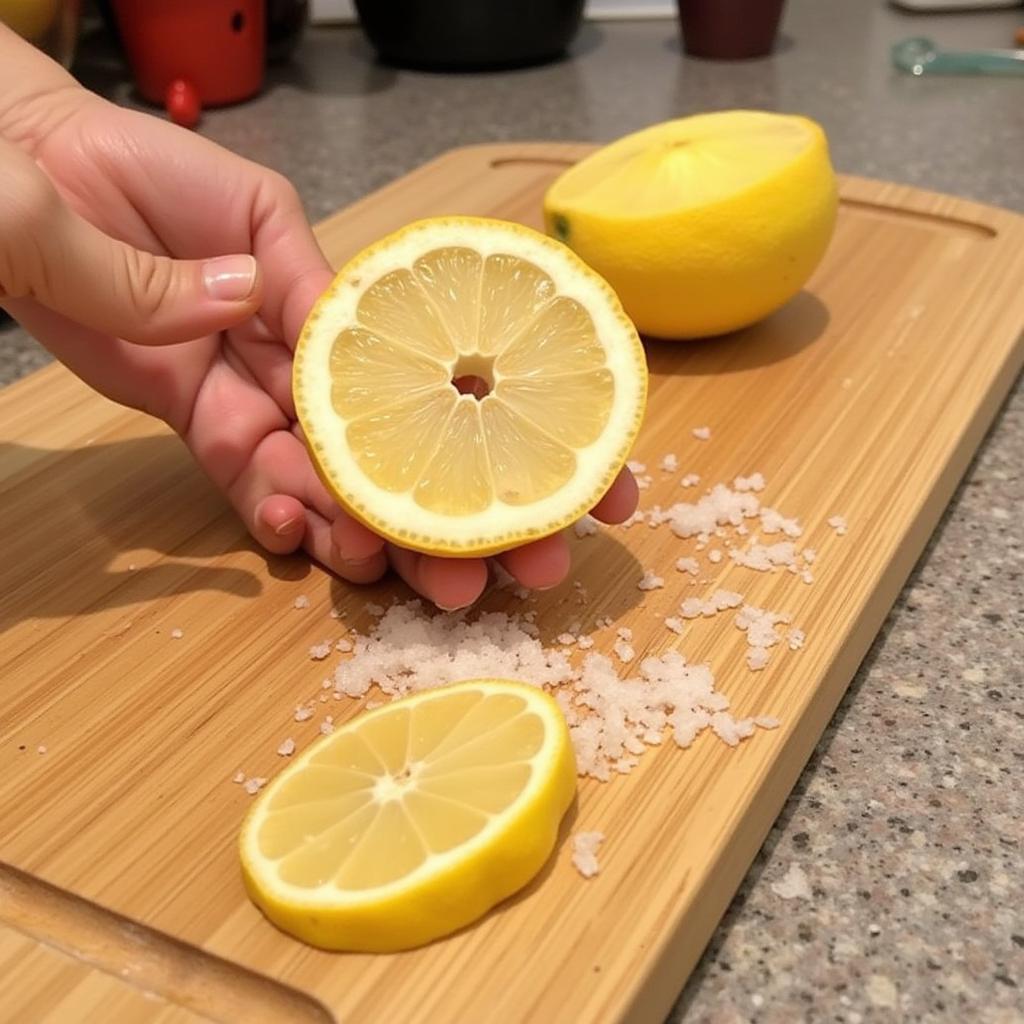Taking Care Of Cooking Tools And Equipments is crucial for any kitchen, whether it’s a professional setup or a home cook’s haven. Proper maintenance not only extends the lifespan of your valuable investments but also ensures food safety and optimal cooking performance. From gleaming stainless steel pots to sharp knives and delicate glassware, each item requires specific care to remain in top condition.
 Cleaning stainless steel pots with baking soda paste
Cleaning stainless steel pots with baking soda paste
Why is Maintaining Cooking Tools and Equipments Important?
Maintaining your cooking tools and equipment is more than just keeping things shiny. It’s an investment in the longevity of your tools, the quality of your food, and even your health. Dull knives can be dangerous, rusty pans can leach harmful chemicals into your food, and a dirty cutting board can harbor bacteria. By taking proper care of your equipment, you’re ensuring a safe and enjoyable cooking experience.
Protecting Your Investment
High-quality cooking tools and equipment can be expensive. Taking the time to clean and maintain them properly protects your investment and prevents the need for premature replacements. Regularly cleaning and sharpening your knives, for instance, will save you from having to purchase new sets frequently.
 Sharpening kitchen knives with a honing steel
Sharpening kitchen knives with a honing steel
Ensuring Food Safety
Bacteria can thrive on unclean surfaces, particularly on cutting boards, knives, and food processors. Thorough cleaning and proper storage are essential to prevent cross-contamination and foodborne illnesses. This includes washing cutting boards with hot soapy water after each use, particularly after handling raw meat.
How to Take Care of Kitchen Tools and Equipments
how to take care of kitchen tools and equipments
Different materials require different cleaning methods. Here’s a general guide for various types of cooking equipment:
-
Stainless Steel: Avoid abrasive cleaners and steel wool. Use gentle dish soap and warm water, followed by a thorough rinse and dry. For stubborn stains, baking soda paste can work wonders.
-
Cast Iron: Avoid soap and harsh detergents. Scrub with hot water and a stiff brush. Dry completely and apply a thin layer of cooking oil to prevent rust.
-
Non-Stick Cookware: Use non-abrasive sponges and avoid metal utensils that can scratch the surface. Wash with warm, soapy water.
-
Wooden Utensils: Hand wash with warm, soapy water. Avoid prolonged soaking. Dry thoroughly and occasionally treat with mineral oil to maintain their condition.
Specific Care Instructions for Different Tools
-
Knives: Sharpen regularly with a honing steel or sharpening stone. Hand wash and dry immediately to prevent rust and maintain sharpness.
-
Cutting Boards: Wash thoroughly after each use, especially after cutting raw meat. Sanitize regularly with a solution of bleach and water.
-
Blenders and Food Processors: Disassemble and wash all removable parts with warm, soapy water. For stubborn residue, soak the parts in warm water with a bit of baking soda.
 Cleaning a wooden cutting board with lemon and salt
Cleaning a wooden cutting board with lemon and salt
“Regular maintenance is the key to keeping your kitchen tools and equipment in top shape,” says renowned chef, Amelia Dubois. “It not only prolongs their lifespan but also ensures that you’re cooking with safe and efficient tools.”
Conclusion
Taking care of cooking tools and equipments is an essential practice for every cook. By following these simple tips and guidelines, you can extend the lifespan of your kitchen investments, enhance food safety, and elevate your culinary experience. Remember, a well-maintained kitchen is a happy kitchen!
FAQ
- How often should I sharpen my knives?
- What’s the best way to remove burnt food from stainless steel pots?
- Can I put wooden cutting boards in the dishwasher?
- How do I prevent rust on cast iron cookware?
- What’s the best way to clean a blender?
- How often should I oil my wooden utensils?
- How do I remove stains from non-stick pans?
Need Help with Car Diagnostics?
While this article focuses on taking care of kitchen equipment, we understand that maintaining your car is equally important. For all your car diagnostic needs, contact us via WhatsApp: +1(641)206-8880, Email: [email protected] or visit us at 910 Cedar Lane, Chicago, IL 60605, USA. Our 24/7 customer service team is always ready to assist you.

Leave a Reply